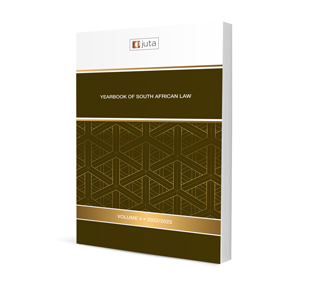Medical and Health Law

Medical and Health Law
Author Andra le Roux-Kemp
ISBN: 978 148515 163 0
Affiliations: BA LLB LLD (Stell) CML BMus Hons BMus (SA); Associate Professor, University of Lincoln (UK)
Source: Yearbook of South African Law, Volume 4, p. 1045 – 1134